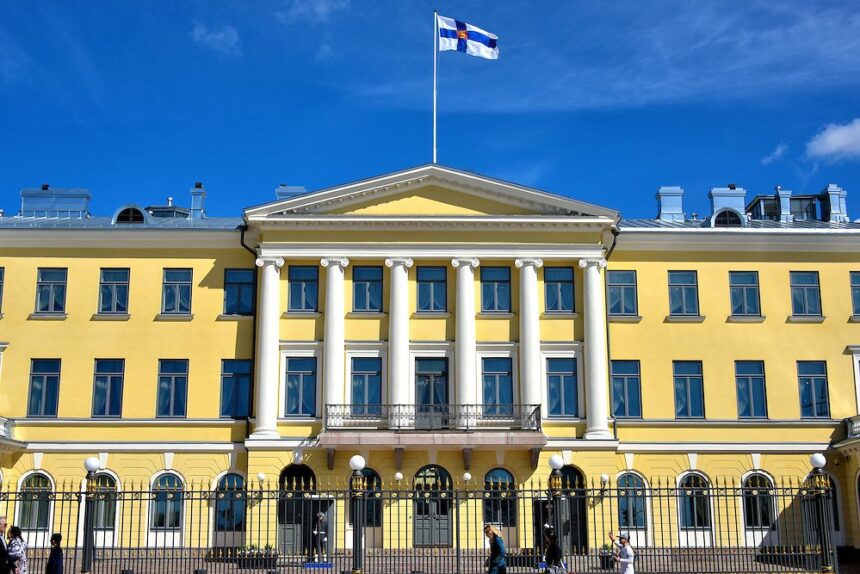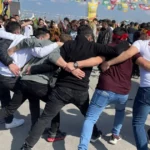Summary by News About Turkey (NAT):
Finland Report Exposes Systematic Persecution of Gulen Movement Members
A report by the Finnish Immigration Service on the ‘Gülen Movement’ highlights the genocide against people alleged to be connected with the movement. The report details, with examples and footnotes, how people are condemned to ‘civil death.’ Based on extensive research and information from various sources, the report notes that people who have had any contact with the Gülen Movement are ‘stigmatized,’ and not only they, but also their family members, suffer due to this stigmatization. It is emphasized that judicial proceedings are not handled on an individual basis.
People Are Targeted Arbitrarily and Widely
The report, titled “Individuals Associated with the Gülen Movement: Summary of the Comprehensive Analysis of Serious and Ongoing Challenges Faced by Individuals During the Finnish Immigration Service’s Investigation Visit to Ankara and Istanbul from October 2-6, 2023,” highlights that people are seen as ‘terrorists’ and considered ‘traitors,’ even without any investigations opened against them. The report provides a detailed and comprehensive summary of the serious and ongoing challenges faced by individuals. It notes that even in the private sector, people are unable to find jobs, and those who help the victims are also ‘criminalized.’
Random Operations Are Conducted
The report states that Turkish authorities continue to carry out security operations targeting individuals alleged to be members or supporters of the Gülen Movement. These operations are regular and often random, with little transparency regarding the criteria used to target individuals. It is reported that even government employees, military personnel, individuals previously acquitted or who have served their sentences, and those engaged in humanitarian aid activities for the families of imprisoned Gülen Movement members are ‘targeted.’
If You Have a Relative Who Used ByLock, Beware!
The report also mentions the evidence used by Turkish authorities to link individuals with the Gülen Movement. The criteria include using the ByLock messaging application, having a Bank Asya account, and various social and financial relations with the movement. The list of criteria is extensive, including more subtle factors such as social media activities and even having a relative who used ByLock.
Torture, Abduction, Enforced Disappearance!
The report draws attention to ongoing human rights violations against individuals connected with the Gülen Movement, including abduction, enforced disappearance, torture, and other forms of ill-treatment. Although the intensity of these violations has decreased since the immediate aftermath of the 2016 coup attempt, they are still widespread.
Blacklisting, Being Targeted!
The report states, “Individuals associated with the Hizmet Movement face significant difficulties in both administrative practices and legal processes. These include blacklisting, being targeted due to family connections, and being subjected to continuous surveillance and potential re-prosecution even after acquittal or serving their sentences.” The report places special emphasis on the issue of ‘stigmatization and exclusion.’
Unlawful Trials Create Deep Social Wounds
“The legal consequences for individuals accused of being associated with the Gülen Movement are severe, and the courts often do not handle cases on an individual basis. Moreover, social consequences, such as the continued stigma associated with being linked to the movement and difficulties in finding employment, are deep and long-lasting,” the report states, adding the following remarks regarding genocidal practices:
An international expert on the Turkish legal system notes that among individuals associated with the Gülen Movement, past contacts with the movement are completely denied, and people try to conceal their identities. According to a Turkish legal expert and a representative of the Platform for Victims of Emergency Decrees, it is impossible for a person to openly state that they are part of the movement without fear of ‘prosecution, persecution, or even violence.’
Being associated with the Gülen Movement stigmatizes a person in the eyes of society, and several sources note that mentioning this connection leads to social exclusion or isolation. This isolation occurs not only within the broader community but also within families. The stigma is related to people’s fear of being associated with the movement and the fact that many view Gülen Movement members as ‘terrorists’ or behave hostilely toward the movement. Some sources use the term ‘civil death’ to describe the condition of individuals associated with the Gülen Movement or more broadly accused of ‘terrorism.’
Being associated with the Gülen Movement (in society) can result in divorce, severing communication with family and friends, losing a job, and relocating. According to a researcher who has studied the situation of individuals associated with the Gülen Movement in the diaspora, being associated with the movement results in being perceived as a ‘terrorist’ and ‘traitor.’ The researcher states that individuals associated with the movement are completely isolated and try to conceal what they have experienced. No one can openly admit their association with the Gülen Movement, even if they have been convicted and served their sentences.
Stigmatization Permeates Everywhere
According to the researcher, when the allegation that a person is connected to the movement becomes known in society, the stigma ‘permeates everywhere’ and affects the person’s life in school and in the neighborhood. The stigma is associated both with hostility toward the Gülen Movement and people’s fear of being associated with it.
Ömer Faruk Gergerlioğlu states that Turkish society stigmatizes individuals associated with the Gülen Movement by remaining silent and silently supporting their isolation process. Gergerlioğlu adds that the public only reacts to ‘exceptionally tragic cases,’ as seen recently when the child of a family associated with the Gülen Movement died of cancer while the mother was in prison. According to researcher Emine Neval, families where one spouse is in prison are especially ostracized, and members of these families find it difficult to find a job or rent a home because they are labeled as ‘terrorists.’
Exclusion Even Without Guilt
Neval explains the social repercussions a person associated with the Gülen Movement might face, noting that individuals may choose to file for divorce due to concerns about potential job loss while their spouses are under investigation. Neval compares being in a relationship with someone under investigation to being exposed to the flu virus. People may choose to keep their distance from the person under investigation to avoid possible negative consequences, even if they do not consider the person guilty.
Being Fired Isn’t Enough, They Are Targeted
A civil society organization member states that it is unlikely that any individual will make a special effort to openly help or show solidarity with people associated with the Gülen Movement. According to the researcher, in practice, ‘civil death’ is not only about losing one’s job but also about authorities forcing people to ‘target those who are targeted.’ People who are dismissed from their jobs are seen as ‘dangerous’ by society, and some family members stop talking to their dismissed relatives.
They Have to Hide Their Beliefs
The researcher discusses the difficulty of overcoming social stigma. For people who are dismissed and stigmatized, it is very difficult to lead a normal life. These people have lost communication with some of their family members and friends, and if they have had to move, they try to hide their past beliefs in their new residence. To hide their past, they do not socialize and isolate themselves from society. Some sources see that the treatment or attitude of society may vary to some extent, depending on factors such as where the individual lives or the political tendencies of the members of that society.



